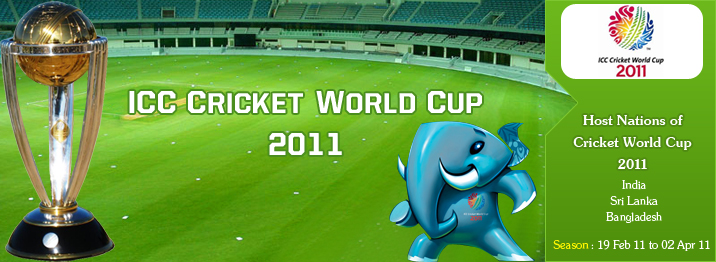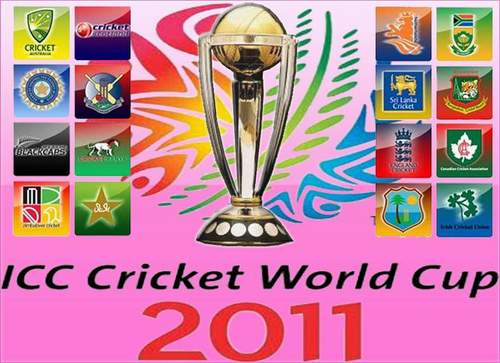Pakistan can be uncertain surprise at World Cup
DELHI: In the 2008 edition of the Under-19 World Cup in Malaysia, there was one Pakistan cricketer who was being talked to by the team coach. He stood there listening attentively to what his senior had to say. A few yards away, a couple of journalists who were on tour covering the World Cup were listening as attentively to a support staff member of Pakistan’s squad.
“Do you see how quietly he is listening to the coach?” the manager pointed out to journalists. “But he will do exactly what he wants once he reaches the crease.”
The young lad who was being talked about was the talented Umar Akmal. Younger sibling of Pakistan wicketkeeper Kamran, Umar has fast gained a reputation of being one the most explosive batsmen of modern day, slam-bang kind of a game. At the same time though, he has become infamous for throwing away his wicket when the team requires his presence on the field. But as the member of Pakistan support staff at the Under-19 World Cup rightly pointed out, Umar will do exactly what he feels is right when on the crease. But he is not the only Pakistan cricketer who go by their instincts. Pakistan is a land full of such cricketers.
And that is Pakistan cricket. Unpredictable! Miles away from what wise men call rational! Even erratic at times. Controversies and cricket in Pakistan are like inseparable sisters. The Pakistan Cricket Board (PCB) had not even named a skipper till about Friday afternoon. But there is something about the Shahid Afridi-led Pakistan squad. At no point, the team can be written off. For, they are the eternal comeback boys of World Cricket.
A classic case is the 1992 edition of the World Cup. For a cricket enthusiast and purists alike, this edition of the World Cup will be remembered for the dramatic comeback Pakistan made. This in spite of the fact that two of their star performers — fast bowler Waqar Younis and opening batsman Saeed Anwar were consumed by injury. But they had an inspirational skipper in Imran Khan. And when Pakistan lost four of their first five matches and were barely a defeat away from being eliminated in the first round, an inspirational speech by Imran turned it around. The dashing Pathan, legend has it, told his teammates to fight like cornered tigers. It inspired the team to win five successive matches, including, most famously, the semifinal against hosts New Zealand and the final against England.
Pakistan went through some heart-stopping moments in the semis against the Kiwis. But an unknown 22-year-old named Inzamam-ul-Haq smashed a 37-ball 60 to help Pakistan win the match and set up a title clash with England. In the years to come, Inzamam went to lead Pakistan to several memorable wins.
That is the beauty of Pakistan cricket. Once a player is inducted into the national squad, he is never awed by the situation, opponent, or even an individual. And just like the 22-year-old Inzamam, there have been many cricketers who have delivered when it mattered.
Abdul Razzaq is one such player. Over a decade after making his international debut, Razzaq may not be spoken in the same breath today as a Kieron Pollard or perhaps a Yusuf Pathan. But this right hander can be equally destructive on his day. He has shown it time and again right from the time he burst onto the international scene in 1999. True, Pakistan have had many heroes. Zaheer Abbas, Majid Khan, Imran Khan, Inzamam, Wasim Akram, Waqar Younis, Saeed Anwar, Saqlain Mushtaq, Mushtaq Ahmed, Shahid Afridi, to name a few, but one thing that tilts the scale in Pakistan’s favour decisively is the selection of Afridi as skipper. Afridi, also a pathan like Imran, is an inspirational leader. On his day, he sure is a match-winner. Add to it his ability to back his teammates. Just like Imran could get his boys to deliver at crunch situations and at the highest level, Afridi can extract the same commitment and dedication from his teammates.
All other captains post the 1992 World Cup triumph have failed to command the kind of respect Afridi and Imran have. Wasim Akram may have been a superb bowler, but throughout his career, he was embroiled in controversies. Inzamam could win a match on his own, but his mood swings never really allowed his teammates to feel comfortable. Javed Miandad was another batsman who could get his teammates to deliver. But he too was involved in unnecessary petty issues with players and the management. Younis Khan led the team to the World T20 crown from a hopeless situation but soon fell out with the others.
Rameez Raja, Saleem Malik and others who captained the team had some problem or the other. The PCB have added to the team’s woes in their own way. Imran not only got the team together, he also backed his players if they had issues with the board. Afridi too in his own way has never ceased to express his feelings if he feels the PCB is in the wrong. Obviously, people like Imran and Afridi will be looked up upon by their teammates.
Pakistan’s squad sure has the balance, but it will be Afrdi, who has to ensure he brings about the best out of his players. Pakistan sure have the right man on the hot seat. —courtesy Times of India [Courtesy The News International]

















 Reply With Quote
Reply With Quote




 011_schedule/wcschedule.swf"] width="970" height="820"[/flash]
011_schedule/wcschedule.swf"] width="970" height="820"[/flash]